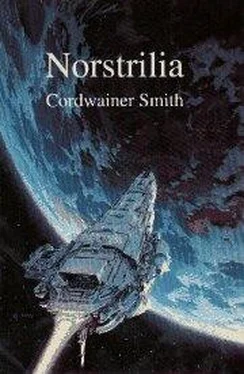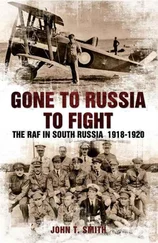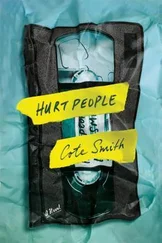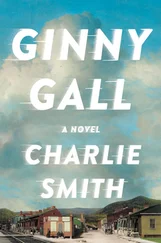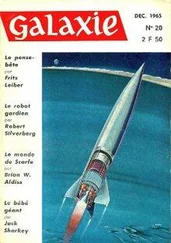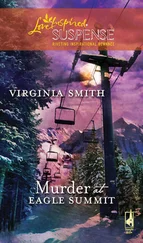These were not men — they were enemies!
Still they came. People who had lost eyes, or who had grown fire-resistant, the wrecks and residues of abandoned settlements and forgotten colonies. The waste and spoilage of the human race.
And then—
Him.
Himself.
The child Rod McBan.
And voices, Norstrilian voices calling: “He can’t hier. He can’t spiek. He’s a freak. He’s a freak. He can’t hier. He can’t spiek.”
And another voice: “His poor parents!”
The child Rod disappeared and there were his parents again. Twelve times smaller than life, so high that he had to peer up into the black absorptive ceiling to see the underside of their faces.
The mother wept.
The father sounded stern.
The father was saying, “It’s no use. Doris can watch him while we’re gone, but if he isn’t any better, we’ll turn him in.”
The calm, loving, horrible voice of the man, “Darling, spiek to him yourself. He’ll never hier. Can that be a Rod McBan?”
Then the woman’s voice, sweet-poisonous and worse than death, sobbing agreement with her man against her son.
“I don’t know, Rod. I don’t know. Just don’t tell me about it.”
He had hiered them, in one of his moments of wild penetrating hiering when everything telepathic came in with startling clarity. He had hiered them when he was a baby.
The real Rod in the dark room, let out a roar of fear, desolation, loneliness, rage, hate. This was the telepathic bomb with which he had so often startled or alarmed the neighbors, the mind-shock with which he had killed the giant spider in the tower of Earth-port far above him.
But this time, the room was closed.
His mind roared back at itself.
Rage, loudness, hate, raw noise poured into hin from the floor, the circular wall, the high ceiling.
He cringed beneath it and as he cringed, the sizes of the images changed. His parents sat in chairs, small chairs. They were little, little. He was an almighty baby, so enormous that he could scoop them up with his right hand.
He reached to crush the tiny loathsome parents who had said, “Let him die.”
To crush them, but they faded first.
Their faces turned frightened. They looked wildly around. Their chairs dissolved, the fabric falling to a floor which in turn looked tike storm-eroded cloth. They turned for a last kiss and had no lips. They reached to hug each other and their arms fell off. Their spaceship had gone milky in mid-trip, dissolving into traceless nothing. And he, he, he himself had seen it!
The rage was followed by tears, by a guilt too deep for regret, by a self-accusation so raw and wet that it lived like one more organ inside his living body.
He wanted nothing.
No money, no stroon, no Station of Doom. He wanted no friends, no companionship, no welcome, no house, no food. He wanted no walks, no solitary discoveries in the field, no friendly sheep, no treasures in the gap, no computer, no day, no night, no life.
He wanted nothing, and he could not understand death.
The enormous room lost all light, all sound, and he did not notice it. His own naked life lay before him like a freshly dissected cadaver. It lay there and it made no sense. There had been many Rodrick Frederick Ronald Arnold William MacArthur McBans, one hundred and fifty of them in a row, but he — 151! 151! 151! was not one of them, not a giant who had wrestled treasure from the sick Earth and hidden sunshine of the Norstrilian plains. It wasn’t his telepathic deformity, his spieklessness, his brain deafness to hiering. It was himself, the “Me-subtile” inside him, which was wrong, all wrong. He was the baby worth killing, who had killed instead. He had hated mama and papa for their pride and their hate: when he hated them, they crumpled and died out in the mystery of space, so that they did not even leave bodies to bury.
Rod stood to his feet. His hands were wet. He touched his face and he realized that he had been weeping with his face cupped in his hands.
Wait.
There was something.
There was one thing he wanted. He wanted Houghton Syme not to hate him. Houghton Syme could hier and spiek, but he was a shortie, living with the sickness of death lying between himself and every girl, every friend, every job he had met. And he, Rod, had mocked that man, calling him Old Hot and Simple. Rod might be worthless but he was not as bad off as Houghton Syme, the Hon. Sec. Houghton Syme was at least trying to be a man, to live his miserable scrap of life, and all Rod had ever done was to flaunt his wealth and near-immortality before the poor cripple who had just one hundred and sixty years to live. Rod wanted only one thing — to get back to North Australia in time to help Houghton Syme, to let Houghton Syme know that the guilt was his, Rod’s, and not Syme’s. The Onseck had a bit of life and he deserved the best of it.
Rod stood there, expecting nothing.
He had forgiven his last enemy.
He had forgiven himself.
The door opened very matter-of-factly and there stood the Catmaster, a quiet wise smile upon his face.
“You can come out now, Mister and Owner McBan; and if there is anything in this outer room which you want, you may certainly have it.”
Rod walked out slowly. He had no idea how long he had been in HATE HALL.
When he emerged, the door closed behind him.
“No, thanks, cobber. It’s mighty friendly of you, but I don’t need anything much, and I’d better be getting back to my own planet”
“Nothing?” said the Catmaster, still smiling very attentively and very quietly.
“I’d like to hier and spiek, but it’s not very important.”
“This is for you,” said the Catmaster. “You put it in your ear and leave it there. If it itches or gets dirty, you take it out, wash it, and put it back in. It’s not a rare device, but apparently you don’t have them on your planet.” He held out an object no larger than the kernel of a groundnut.
Rod took it absently and was ready to put it into his pocket, not into his ear, when he saw that the smiling attentive face was watching, very gently but very alertly. He put the device into his ear. It felt a little cold.
“I will now,” said the Catmaster, “take you to C’mell, who will lead you to your friends in Downdeep-downdeep. You had better take this blue twopenny Cape of Good Hope postage stamp with you. I will report to Jestocost that it was lost while I attempted to copy it. That is slightly true, isn’t it?” Rod started to thank him absent-mindedly and then—
Then, with a thrill which sent gooseflesh all over his neck, back and arms, he realized that the Cat-master had not moved his lips in the slightest, had not pushed air through his throat, had not disturbed the air with the pressure or noise. The Catmaster had spieked to Rod, and Rod had hiered him.
Thinking very carefully and very clearly, but closing his lips and making no sound whatever, Rod thought,
“Worthy and gracious Catmaster, I thank you for the ancient treasure of the old Earth stamp. I thank you even more for the hiering-spieking device which I am now testing. Will you please extend your right hand to shake hands with me, if you can actually hier me now?” The Catmaster stepped forward and extended his hand. Man and underman, they faced each other with a kindness and gratitude which was so poignant as to be very close to grief.
Neither of them wept. Neither.
They shook hands without speaking or spieking.
EVERYBODY’S FOND OF MONEY
While Rod McBan was going through his private ordeal at the Department Store of Hearts’ Desires, other people continued to be concerned with him and his fate.
A CRIME OF PUBLIC OPINION
A middle-aged woman, with a dress which did not suit her, sat uninvited at the table of Paul, a real man once acquainted with C’mell.
Читать дальше
